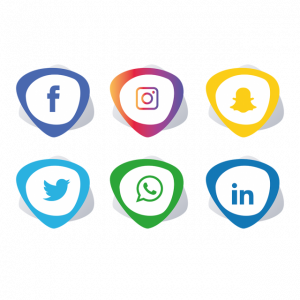Introduction
Recently, emerging and new technologies have transformed the healthcare industry. Doctor offices and hospitals big and small have implemented new technologies to respond to the evolving industry and to boost the overall patient care quality.
Nowadays, medical institutions mean high-tech operations, putting cutting-edge software solutions in the hands of experts and professionals. Today, IT services for the healthcare field have been more important.
Healthcare IT—what it’s all About
At its core, healthcare IT is all about communication—communication between team members, devices, medical providers, patients, and medical facilities. The communication channels are enabled by carefully chosen and installed hardware solutions that are maintained with effective and prompt repair services. The components should be flexible and scalable so the network could grow together with the health facility.
Basically, healthcare IT is an area of Information Technology that involves designing, developing, creating, using, and maintaining information systems for the industry. Interoperable and automated healthcare systems continue boosting public health, medical care, increase efficiency, lessen costs, boost patient satisfaction, and minimize errors. At the same time, the software solutions also optimize the reimbursement for inpatient and ambulatory healthcare providers.
Nowadays, the relevance of health IT results from the combination of the evolving government policies and technology that impact the quality of patient care. The role of IT in communications puts it on the front lines of the security team. Patient privacy rights, patient well-being, and healthcare IT standards all require a secure and trustworthy network that’s easy to use and transparent.
A provider of IT services could help initiate the best network security practices. Patients these days expect their data to be secure, thus security is of utmost importance.
What Information Technology Means in the Healthcare Field
Quality
In medical facilities today, technology plays a crucial role. A reliable and well-designed technology solution frees up time and attention of the staff, letting them concentrate on patient care. A robust network, furthermore, enables the healthcare facility to implement powerful new technology, such as latest monitoring devices for instance.
Privacy and Security
For any healthcare provider, security is paramount. It’s not only about meeting regulatory requirements, but protection of investments into equipment as well. Moreover, it also ensures the privacy of health records. When it comes to reputation and credibility, data security is a key component.
Easy Collaboration
When the network functions as it should, the staff will have access to information they need to provide the best patient care all the time. Teams can operate as teams only when they are able to communicate effectively, and IT makes it all possible.
Accuracy
When software and hardware are not designed with the needs of the end users in mind, errors are inevitable. Technology could help make sure that the members of the team are more successful as they input and verify codes, which lead to lesser medical errors.
Lesser Costs
The right provider of healthcare IT could help save money on buying wireless and telecom networking products, provide a competitive edge and save money as new technologies are implemented. Moreover, IT could help a healthcare facility operate more efficiently, from managing a big staff and automating repetitive tasks to putting the right information quickly.
Conclusion
The role of IT in the healthcare industry involves using technology to assess, record, and distribute patient-related data. Moreover, the goal of IT in the field is to boost the overall health of people by improving the quality of care.


